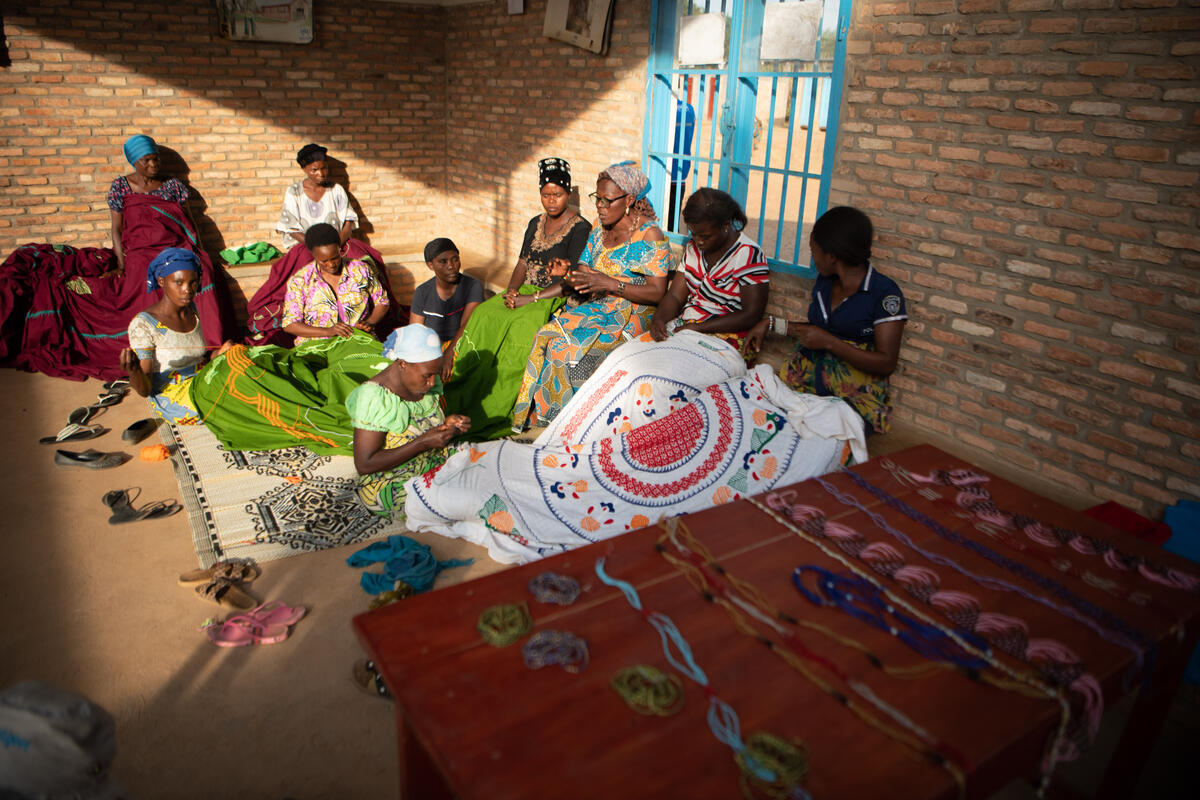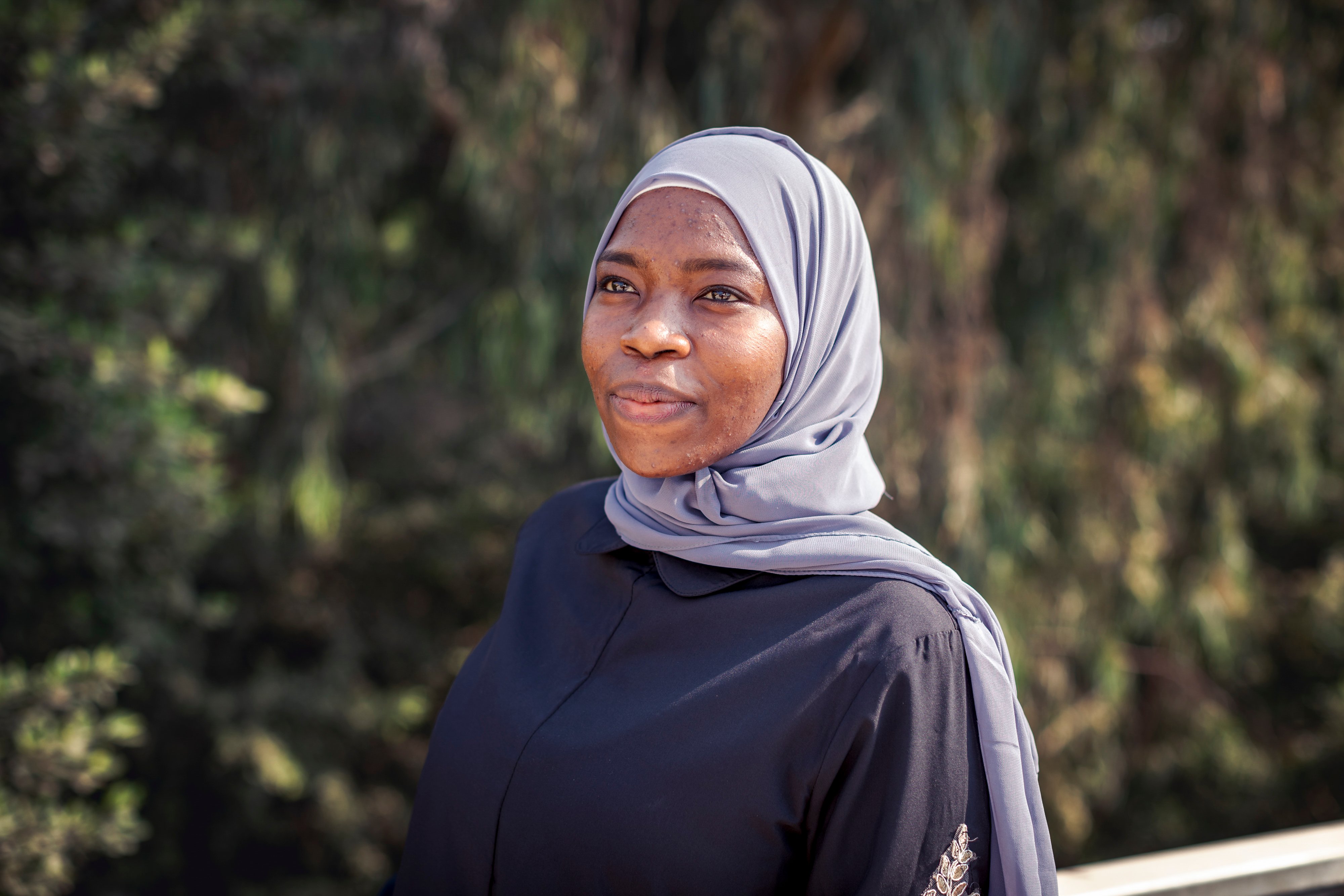'We were made for Afghanistan, and Afghanistan was made for us'

'We were made for Afghanistan, and Afghanistan was made for us'
For over 40 years, persistent conflict and instability in Afghanistan have forced millions of Afghans to flee their homes in search of safety. Today, some 4.6 million Afghans, including 2.7 million registered refugees, still live outside the country, mostly in neighbouring Pakistan and Iran.
Despite the continued challenges, nearly 6 million Afghan refugees have returned home since 2002, including 5.3 million with UNHCR’s support. Among these refugee returnees are Zahra Mohammadi and her family, who returned from Iran in 2004-5. Registered refugees in Iran are now able to access a range of services, including national education and healthcare systems. But financial constraints remain a challenge for some, and undocumented Afghans face particular barriers.
Afghanistan is my country.
I now live in Kabul, the capital of Afghanistan, but I was born a refugee in Iran. My parents made the decision to move us back to Afghanistan in 2004-2005, when I was five years old.
My family had sought safety in Iran and had been living there for years, but Iran was not our country. When we arrived back in Afghanistan, we found ourselves in a place that had been totally destroyed by conflict: destruction was visible everywhere and it was hard even to get safe drinking water. When meeting people, we could see in them the face of the long wars, evidence of years of violence and hardship.
But it felt good to be back, despite all the challenges. Even though my family had been gone for a long time, we didn’t feel as though we were strangers in another country; we had come back to our own. We were no longer refugees. We were made for Afghanistan, and Afghanistan was made for us.
Returning to Afghanistan was like a return to freedom. At the time, there were more restrictions on refugees in Iran, including on freedom of movement. When we came back to Afghanistan as citizens, there were no such restrictions. No one asked us: “Why are you travelling from here to there?” And no one asked us to show our refugee cards.
For me, most importantly, my siblings and I have been able to access educational opportunities. As a refugee, it was back then difficult to gain access to the education system in Iran. My younger brother and I had reached school age; part of the reason why my parents decided to bring us back was so we could go to school and continue our studies.
Here in Afghanistan, my siblings and I have all been able to go to school. It’s the reason why today, I’m a Journalism student at Kabul University; my relatives who didn’t return are tailors, embroiderers or working in other trades. They didn’t have the opportunity to pursue schooling and to become educated.
Of course, the security situation in Afghanistan remains challenging. Just a few weeks ago, my university was attacked by gunmen and my fellow students were killed. It was a really traumatizing experience. But we must persevere and go on. I personally decided to stay in school and to continue my education for the sake of my country; I feel that I am not studying just for myself, but for my country and for its development.
I am thankful to be a DAFI scholar and to receive support to continue my education. I am the head of my household, as my father passed away several years ago. The DAFI scholarship has allowed me to continue my studies while also enabling me to continue supporting my mother and three younger siblings.
After I complete my bachelor’s degree, I plan to pursue a master’s degree and then become a journalist. My country is facing challenges from many angles; we all need to play a part in working towards its prosperity and to reduce the burdens faced by fellow Afghans. I hope to make a contribution to the country; in this regard, I am not alone.
I am part of Afghanistan’s new generation; we are the future of Afghanistan. I’m confident that we will be able to bring positive change to Afghanistan. We ask that the international community empowers our generation by supporting our education and investing in our future. They should not leave us behind.
Zahra Mohammadi is a third-year Journalism student at Kabul University and a recipient of the DAFI (Albert Einstein German Academic Refugee Initiative) scholarship programme.
Since 1992, UNHCR has awarded more than 18,500 DAFI scholarships to young refugees around the world so that they can attend university. Mainly funded by the German government, the scholarship programme provides money for tuition, textbooks, food, transportation and other expenses.









